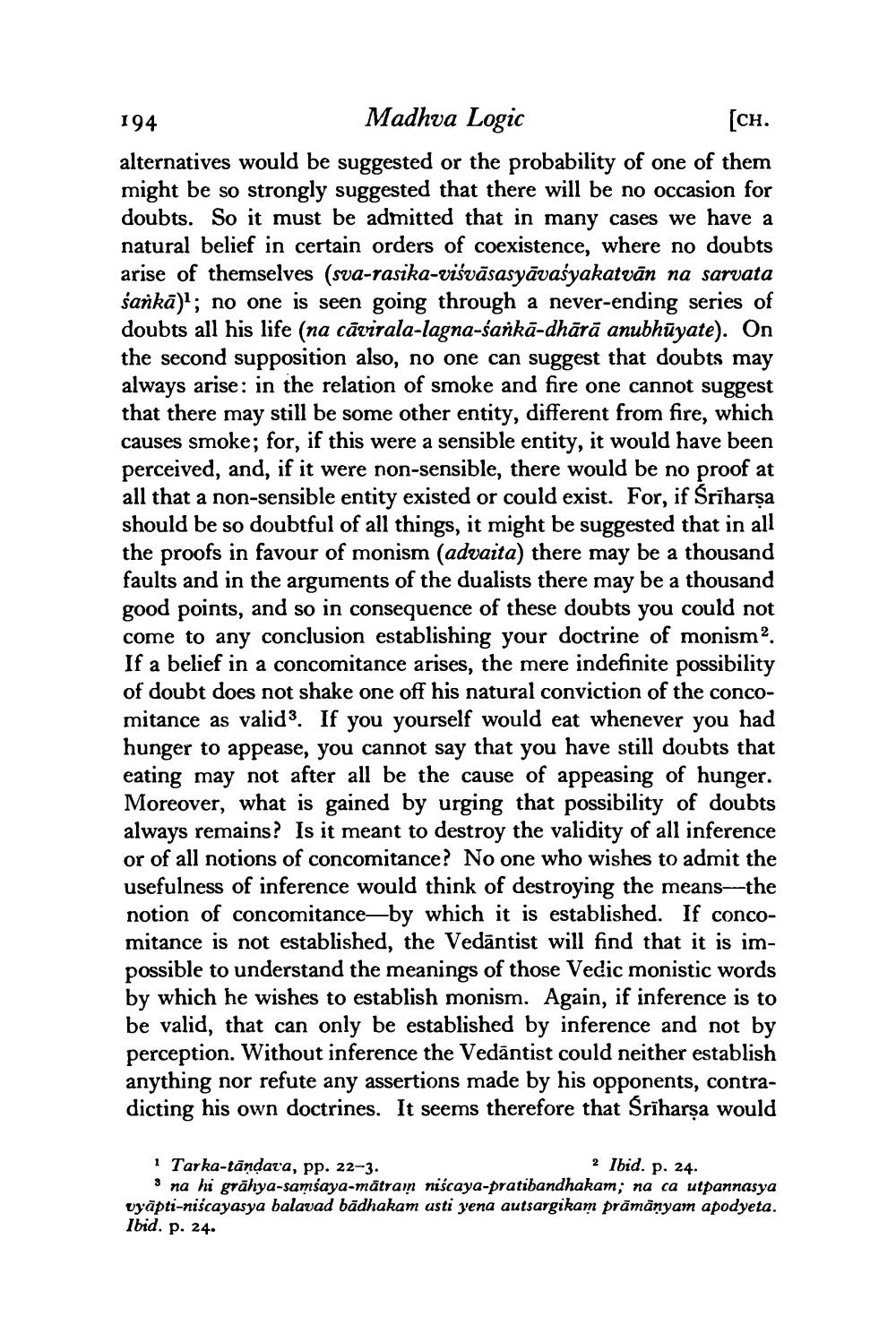________________
194 Madhva Logic
[CH. alternatives would be suggested or the probability of one of them might be so strongly suggested that there will be no occasion for doubts. So it must be admitted that in many cases we have a natural belief in certain orders of coexistence, where no doubts arise of themselves (sva-rasika-visvāsasyāvašyakatvān na sarvata sankā)); no one is seen going through a never-ending series of doubts all his life (na cāvirala-lagna-sankā-dhārā anubhūyate). On the second supposition also, no one can suggest that doubts may always arise: in the relation of smoke and fire one cannot suggest that there may still be some other entity, different from fire, which causes smoke; for, if this were a sensible entity, it would have been perceived, and, if it were non-sensible, there would be no proof at all that a non-sensible entity existed or could exist. For, if Sriharsa should be so doubtful of all things, it might be suggested that in all the proofs in favour of monism (advaita) there may be a thousand faults and in the arguments of the dualists there may be a thousand good points, and so in consequence of these doubts you could not come to any conclusion establishing your doctrine of monismo If a belief in a concomitance arises, the mere indefinite possibility of doubt does not shake one off his natural conviction of the concomitance as valids. If you yourself would eat whenever you had hunger to appease, you cannot say that you have still doubts that eating may not after all be the cause of appeasing of hunger. Moreover, what is gained by urging that possibility of doubts always remains? Is it meant to destroy the validity of all inference or of all notions of concomitance? No one who wishes to admit the usefulness of inference would think of destroying the means the notion of concomitance—by which it is established. If concomitance is not established, the Vedāntist will find that it is impossible to understand the meanings of those Vedic monistic words by which he wishes to establish monism. Again, if inference is to be valid, that can only be established by inference and not by perception. Without inference the Vedāntist could neither establish anything nor refute any assertions made by his opponents, contradicting his own doctrines. It seems therefore that Śrīharşa would
1 Tarka-tāndara, pp. 22-3.
2 Ibid. p. 24. s na hi grāhya-samsaya-mātrain niscaya-pratibandhakam; na ca utpannasya vyāpti-niscayasya balavad bādhakam asti yena autsargikam prāmanyam apodyeta. Ibid. p. 24.




